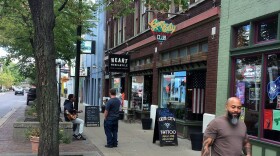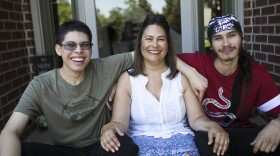This year, WYSO's partner project, Your Voice Ohio, has been examining how Ohio communities are thriving amid job loss, poverty, addiction, automation and other serious economic challenges.
"Almost universally – except for the Columbus metro area – counties across Ohio have experienced precipitous economic decline for two decades – some for 30 or 40 years," leading to steep job losses and a significant drop in quality of life, writes Your Voice Ohio's Doug Oplinger.
At a series of public meetings held this fall in cities across the state, Your Voice Ohio organizers asked participants for their solutions to improving Ohio's economy, quality of life and vibrancy.
Read more about the Your Voice Ohio meetings here.
A recent Frontline ProPublica documentary called Left Behind America reported on the economic struggles of Dayton, “a once-booming city where nearly 35 percent of people now live in poverty.”
As we approach the midterm elections, WYSO wanted to hear what everyday Daytonians think about the city’s economy and quality of life. So, WYSO News intern Sheila Raghavendran headed to Dayton to find out. She started by asking people a simple question:
What do you think Dayton could do to make the city more vibrant, not just in the downtown area but across all the neighborhoods?
And here's some of what people had to say:
"Investing in education."
"The school system."
"Affordable housing."
"More of the politicians coming together to make the place a better place."
"The mayor needs to be more involved with the city because she's not."
They need to clean up these neighborhoods, put money into the neighborhoods. It's terrible. The drugs, the homeless people."
"Make it look like it's exciting to be [downtown], like, this is downtown. You know, there's nothing for people to do."
"You have to go all way south of town to get something. You can't even shop in your neighborhoods. That's bad."
"They're always putting money downtown. What about the west side, the east side? They need money over there. There's something for everybody."
"It's a struggle for everybody, really, out here. It takes prices up on different things. It’s hard. So it makes it hard for working people."
--

This story is part of WYSO's Scratch series on innovation, business and the economy. To learn more, visit







